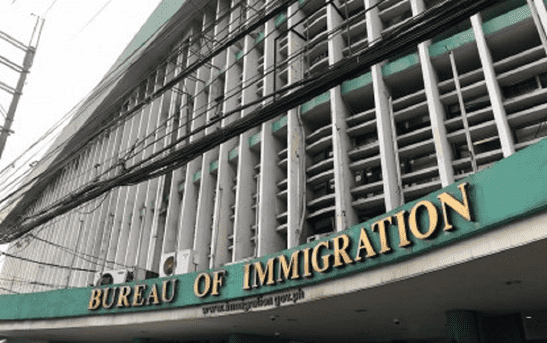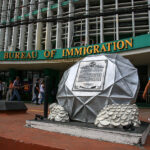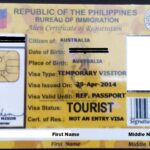The Philippines has long attracted talented expatriates and professionals thanks to its dynamic economy, regional significance, and diverse job opportunities. For foreign nationals seeking employment in Philippine companies, the 9G work visa is the primary pathway to live and work legally in the country. Understanding how this visa works, from eligibility through documentation, processing, and renewal, ensures compliance, avoids delays, and empowers both employers and foreign employees.
What Is the 9G Visa and Who Needs It?
The 9G visa (Pre-Arranged Employment Visa) is a non-immigrant visa issued by the Bureau of Immigration (BI) to foreign nationals who have secured legitimate employment with a Philippine-based, registered employer. Unlike tourist or business visas, which prohibit compensated work, the 9G visa grants foreign workers the ability to reside and earn income, typically for one to three years or as long as the employment contract remains valid.
Foreign professionals, skilled tradespeople, specialists, and technical experts seeking long-term employment in the country must obtain a 9G visa before starting work. Employers play an important role in the visa process, serving as legal sponsors and responsible parties for documentation and compliance.
Why the 9G Visa Is Essential for Foreign Workers
Foreign nationals wishing to engage in paid employment, whether in sectors like engineering, healthcare, IT, hospitality, education, or services, are required by Philippine law to secure a 9G visa. Without this visa, working is unauthorized and can lead to penalties, deportation, or blacklisting.
The 9G visa also accommodates dependent family members, such as spouses and unmarried children, fostering family stability for expatriates building careers in the country.
Eligibility Criteria for the 9G Visa
To qualify for the 9G visa, applicants must meet several requirements:
- Be at least 18 years old and possess an employment offer or valid contract with a registered Philippine employer.
- Employers must be a duly registered entity with the Department of Trade and Industry (DTI) or Securities and Exchange Commission (SEC).
- The position must require skills or expertise otherwise unavailable among qualified Filipino workers.
- Pass medical and police clearance checks.
- Submit proof of education, licensing, and previous work experience where relevant.
Specialized fields such as medicine, engineering, or law may require applicants to prove local licensing and credentials.
Employment Types Covered by the 9G Visa
This work visa is intended for a broad spectrum of professions:
- Professional Roles: Doctors, nurses, engineers, teachers, legal professionals, IT specialists, etc.
- Skilled Trades: Construction workers, technical staff, mechanics, electricians, etc.
- Service Sector: Hospitality, retail, customer service, and office administrators.
- Others: Supervisory and management positions, subject to company needs.
Temporary or volunteer work, diplomatic assignments, or government contracts often fall under other special permits and may be exempt.
Key Documents Required for the 9G Visa Application
A successful 9G application requires a coordinated effort between the employer and the applicant to collect, authenticate, and submit the following documents:
- Valid passport (with at least six months’ validity).
- Job offer letter and/or employment contract (signed, notarized).
- Bureau of Immigration visa application form.
- Educational diplomas and professional certificates.
- Alien Employment Permit (AEP) from the Department of Labor and Employment (if applicable).
- Proof of employer registration (SEC or DTI certificates, business permits).
- Medical clearance from a licensed medical facility in the Philippines.
- Recent police clearances from the home country and/or the previous country of residence.
- Photos per BI specifications (passport-size, recent).
- For dependents: marriage and birth certificates (apostilled or authenticated if issued abroad).
- Supporting financial or professional documentation for specialized roles.
Step-by-Step Process: How to Qualify and Apply for a 9G Visa
To apply for a 9G visa, here are the steps that you need to follow:
- Secure a Job Offer and Employer Sponsorship
Candidates must first obtain a legitimate job offer from a registered Philippine employer. The employer acts as a sponsor and is responsible for initiating the application, including the AEP request.
- Gather Documents and Check for Completeness
Applicants and employers jointly compile all required documents, ensuring education credentials, medical clearances, and employment contracts are accurately and completely prepared.
- Employer Submits Application to the Bureau of Immigration
All paperwork is submitted to the BI, either directly or through authorized visa consultants. Medical and background checks are performed, and the BI may request additional information or interviews.
- Pay Visa Application Fees
Application fees vary, covering government charges, AEP fees, and third-party processing (if applicable). Budget for additional costs such as medical exams and police certifications.
- Await Approval
Typical processing time ranges from two to four weeks, but can extend due to documentation errors or peak periods. The BI will notify applicants and employers once approval is granted.
- Complete Biometric Capture and Claim Visa
Applicants may need to attend a biometrics appointment for fingerprints and ID photos. Once approved, the BI issues the visa stamp and Alien Certificate of Registration (ACR) I-Card.
What Employers Should Do During and After the 9G Visa Process
Philippine employers sponsoring 9G visa applicants must ensure:
- Timely submission of accurate and complete documents.
- Authentic job classification and fair representation in contracts.
- Oversight and compliance with all visa terms; report changes promptly (termination, job category, dependents).
- Support dependent applications and renewals.
- Ongoing communication with the Bureau of Immigration in case of status updates or audits.
Employers who fail to maintain compliance may be penalized and lose the right to sponsor foreign staff.
Understanding Renewal and Work Restrictions for the 9G Visa
The 9G visa is employer-specific; changing jobs will necessitate a new application or special approval from BI. Holders must work only for the employer/company specified in their contract, and renewal is valid only if employment continues.
Renewal requires:
- Updated employment contract and supporting documents.
- Renewed medical and police clearances.
- Proof of continued Philippine employer sponsorship.
Common Mistakes to Avoid with 9G Visa Applications
Frequent obstacles that delay processing or cause denials include:
- Incomplete or inconsistent documentation.
- Missing signatures on forms.
- Misclassification of job roles or employer information.
- Failing to provide the required medical or police certifications.
- Delays in submitting renewals, resulting in overstaying or fines.
Meticulous preparation is vital. Check every document for accuracy and compliance before submission.
How to Include Dependents in the 9G Visa Application
Foreign workers may include their spouse and children in the 9G application. Required documents include:
- Apostilled or authenticated marriage certificate (for spouses).
- Apostilled or authenticated birth certificates (for children).
Dependent visas are typically granted for the same duration as the principal’s work visa.
Special Cases and Exemptions
Certain foreign workers ,such as diplomats, those working for international organizations, or personnel on temporary government assignments, may qualify for exemptions, special permits, or different visa types. Consult with BI or a professional consultant for complex or unusual cases.
Consequences of Violating 9G Visa Terms
Failure to comply with 9G visa conditions, including unauthorized employment, expired status, or fraudulent documentation, can lead to fines, deportation, and blacklisting. Adhere strictly to all terms and consult an expert if you have any uncertainties.
The Value of Expert Guidance for 9G Visa Applications
Professional consultancy streamlines the process, offering:
- Tailored advice on document requirements and eligibility.
- Hands-on support in compiling, authenticating, and submitting all forms.
- Proactive resolution of common mistakes and delays.
- Clear communication with Visa authorities and compliance monitoring.
Expert support saves time, avoids penalties, and ensures peace of mind for both employers and expatriates.
Final Insights
The 9G work visa makes it possible to secure a job and build a rewarding career in the Philippines, provided applicants and employers follow regulations and prepare thoroughly. This visa enables legal employment, family unity, and residency, serving as a gateway to opportunity in the Philippines’ dynamic economy.
For a smooth, successful application process, rely on professional guidance and ensure all requirements are met well in advance.
Is Assistance Available?
Yes. Work Visa Philippines specializes in 9G visa processing. Our expert team assists employers and employees from initial consultation through document gathering, submission, and compliance follow-up, ensuring every step is accurate and efficient. Contact us today for personalized 9G visa support:
- Contact Us Here
- Fill Out the Form Below
- Call us at +63 (02) 8540-9623





